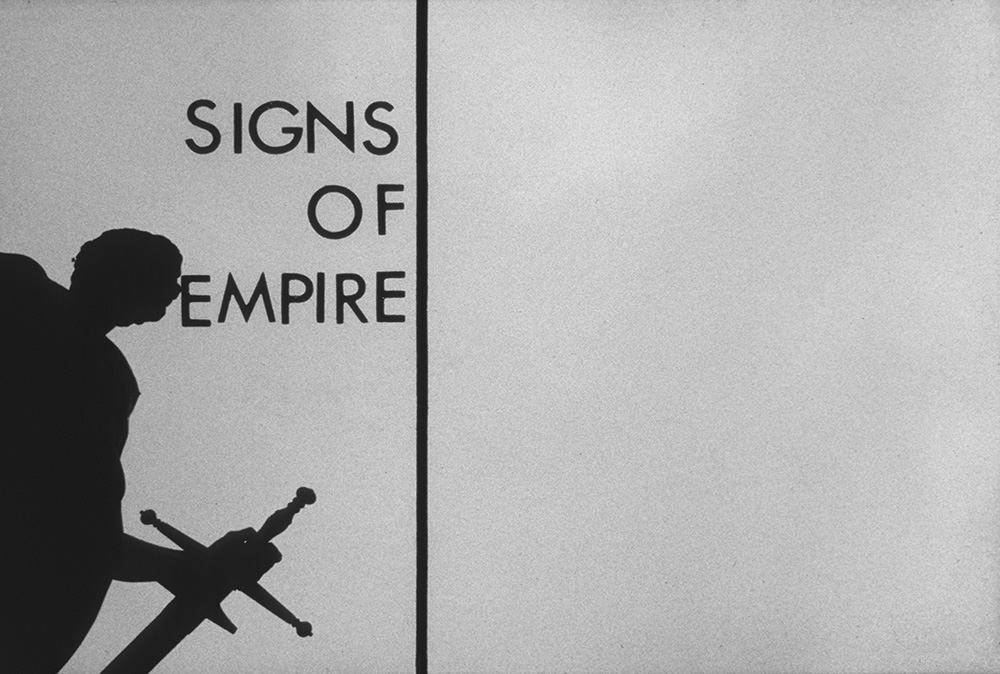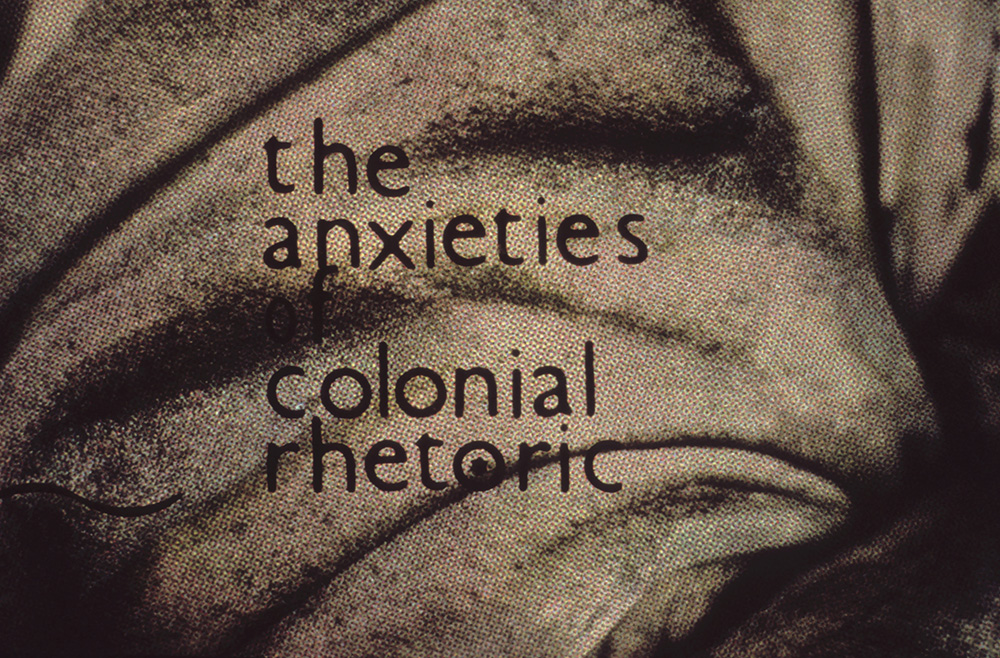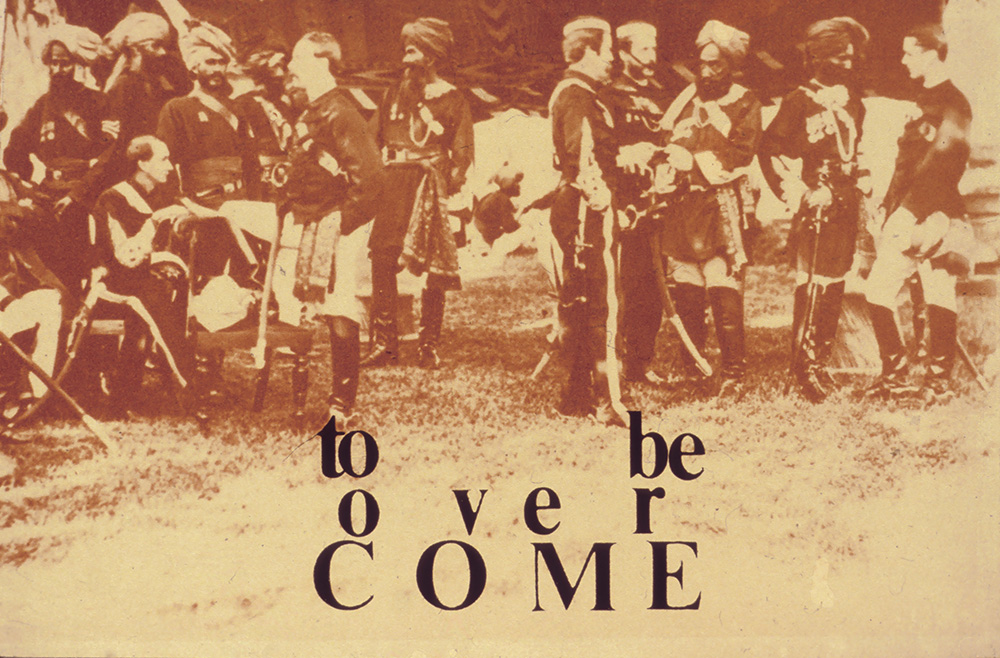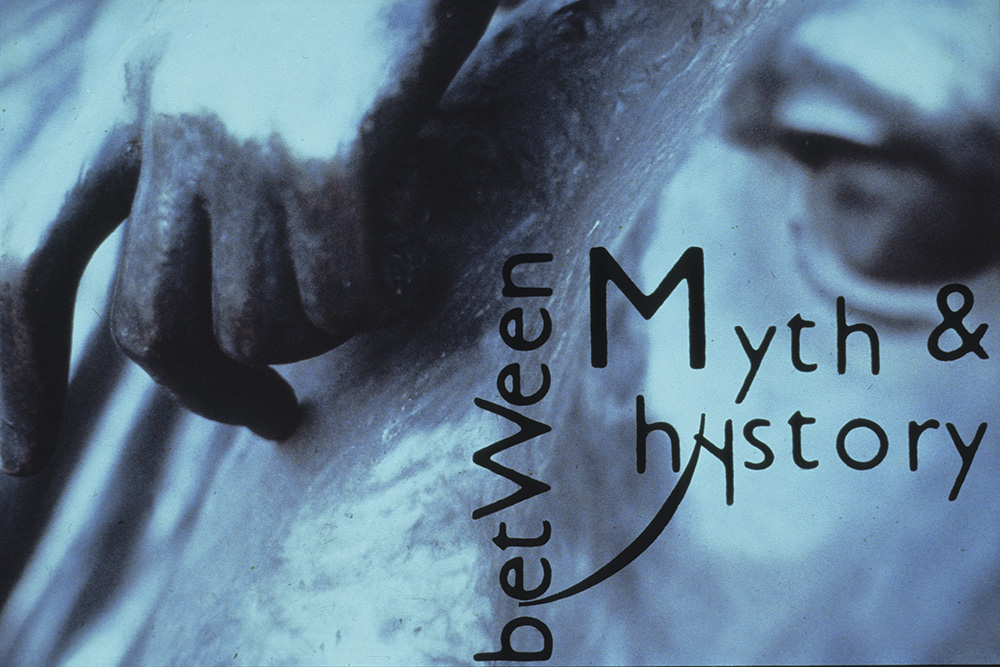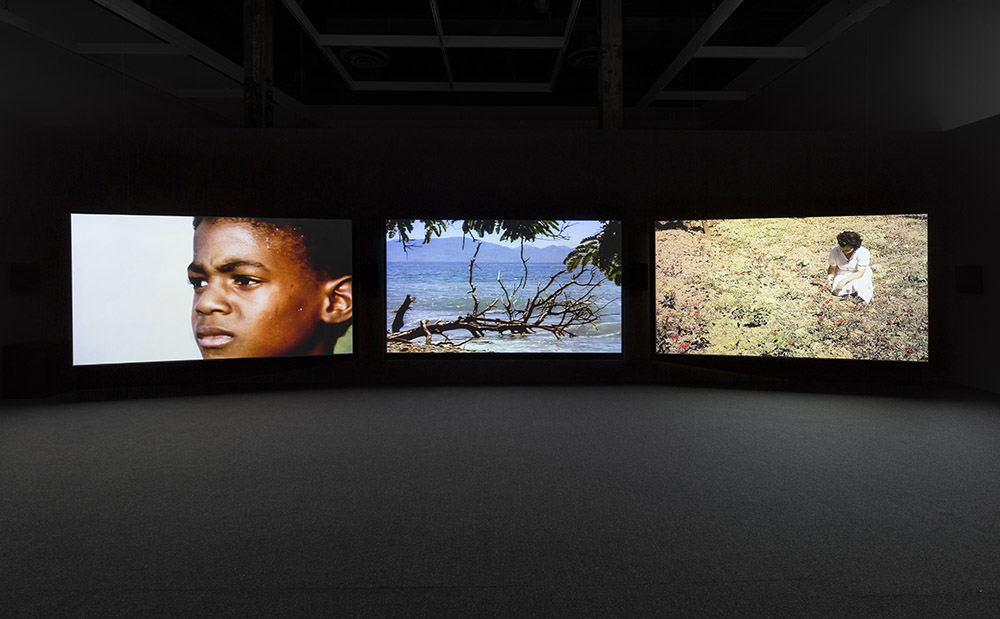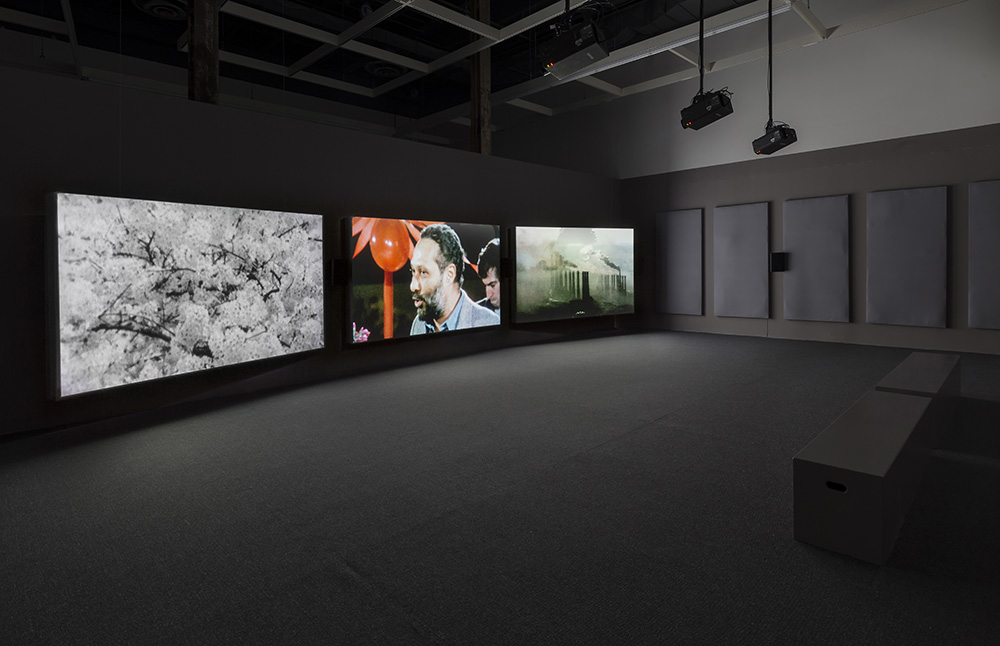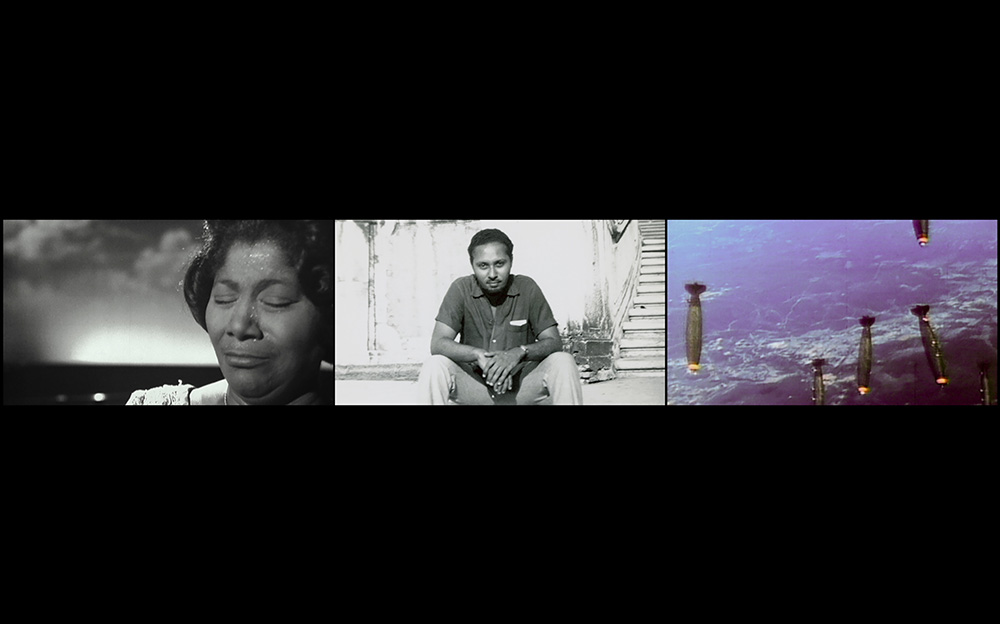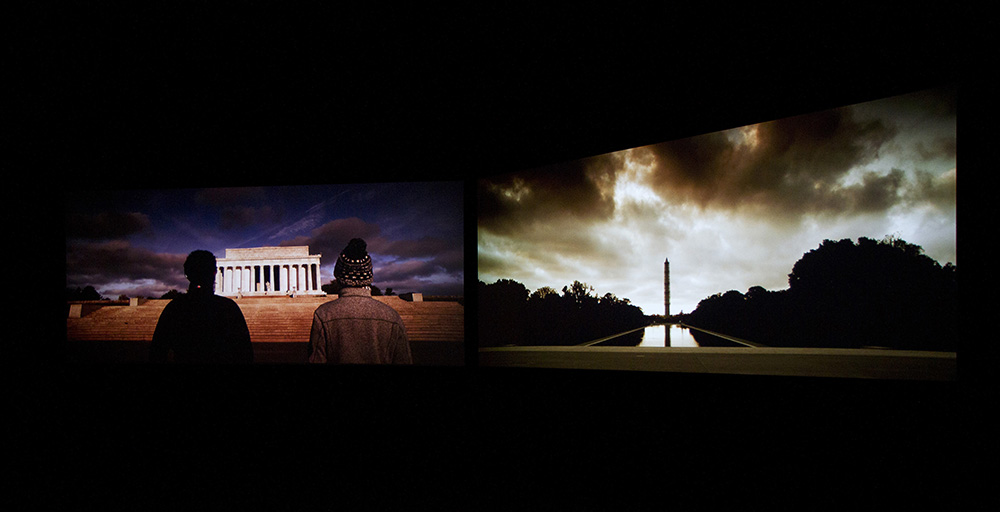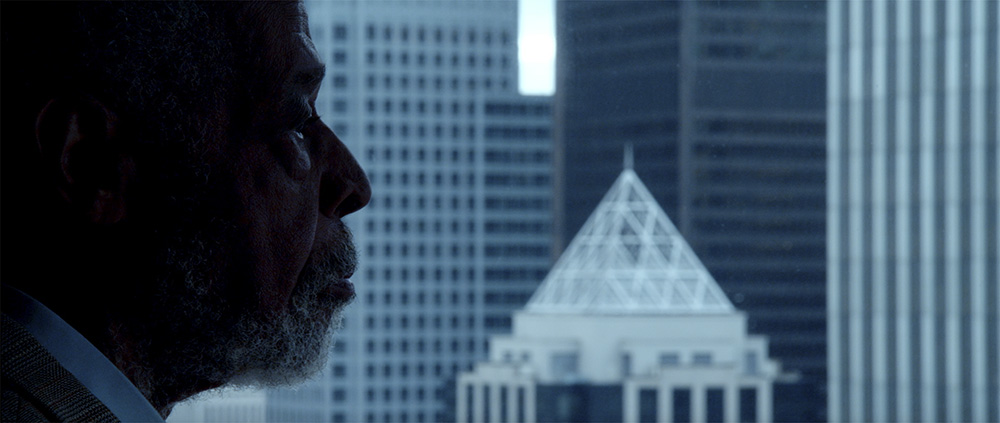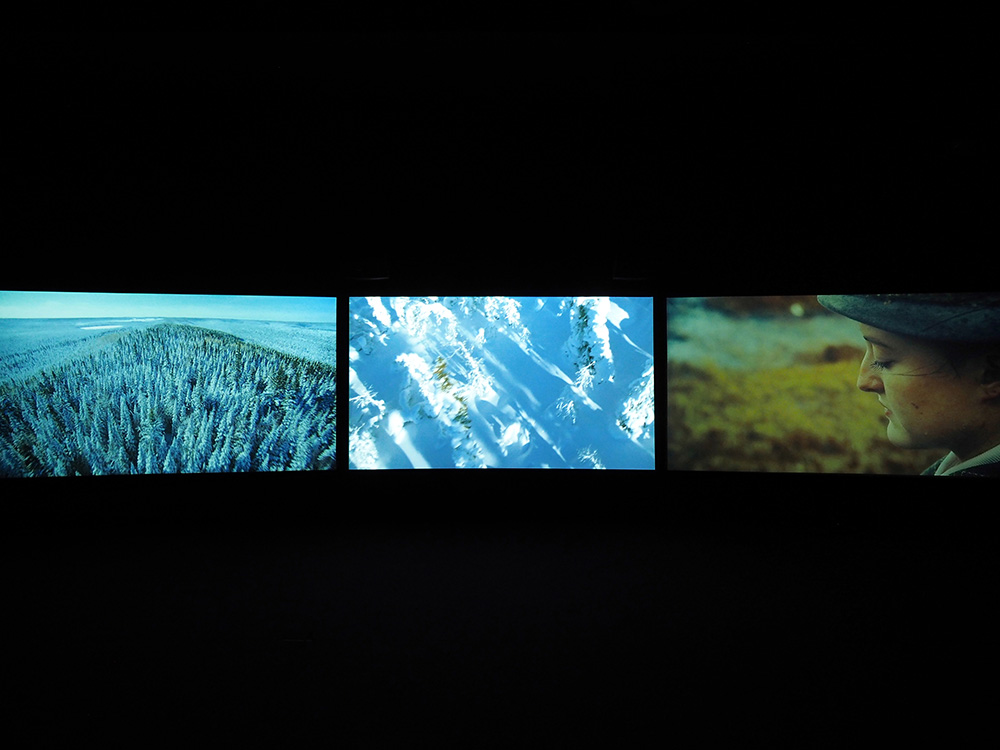ART CITIES:N.York-John Akomfrah
 John Akomfrah has been committed to giving a voice and a presence to the legacy of the African diaspora in Europe, filling in the voids in history by digging into historical archives to create film essays and speculative fictional stories about past lives and future possibilities. Costume dramas have been critical to this exploration since they provide a staging of history and suggest that one can have a direct access to the past.
John Akomfrah has been committed to giving a voice and a presence to the legacy of the African diaspora in Europe, filling in the voids in history by digging into historical archives to create film essays and speculative fictional stories about past lives and future possibilities. Costume dramas have been critical to this exploration since they provide a staging of history and suggest that one can have a direct access to the past.
By Efi Michalarou
Photo: New Museum Archive
“Signs of Empire” is the title of the first USA survey exhibition of the work of John Akomfrah and is on presentation at New Museum in New York. Since the early 1980s, Akomfrah’s moving image works have offered some of the most rigorous and expansive reflections on the culture of the black diaspora, both in the UK and around the world. Akomfrah’s work initially came to prominence in the early 1980s as part of Black Audio Film Collective, a group of seven artists founded in 1982 in response to the 1981 Brixton riots. The collective produced a number of films notable for their mix of archival and found footage, interviews and realist depictions of contemporary England, and layered sound collages. In works like “Handsworth Songs” (1986), Akomfrah and Black Audio outlined the political and economic forces leading to social unrest throughout England. Their works were remarkable for their trenchant political inquiries and consistently experimental approach. They were also pioneering in their injection of narratives of black British history and culture into popular media through documentaries made for British television. Throughout the 1990s, Akomfrah’s subject matter expanded beyond the social fractures of contemporary British society to focus on a wider historical context, from the persistent legacy of colonialism to the roots of the contemporary in classical literature. Moving into the early 2000s, Akomfrah also produced a series of atmospheric works addressing personal and historical memory. The centerpiece of the exhibition at the New Museum is Akomfrah’s three-screen video installation “Vertigo Sea” (2015). The work, which first premiered at the 56th Venice Biennale is a sensual, poetic and cohesive meditation on man’s relationship with the sea and exploration of its role in the history of slavery, migration, and conflict. Fusing archival material, readings from classical sources, and newly shot footage, the work explicitly highlights the greed, horror and cruelty of the whaling industry, juxtaposed with shots of African migrants crossing the ocean in a journey fraught with danger in hopes of “better life” and thus delivering a timely and potent reminder of the current issues around global migration, the refugee crisis, slavery, alongside ecological concerns. The exhibition also include “The Unfinished Conversation” (2012), Akomfrah’s complex reflection on the life and ideas of cultural theorist Stuart Hall, “Expeditions I – Signs of Empire” (1983), the first work produced by Black Audio Film Collective, and a new version of Akomfrah’s “Transfigured Night” (2013-18), a two-channel work looking at the relationship between the US and post-colonial African history.
Info: Curators: Gary Carrion-Murayari and Massimiliano Gioni, New Museum, 235 Bowery, New York, Duration: 20/6-2/9/18, Days & Hours: Tue-Wed & Fri-Sun 11:00-18:00, Thu 11:00-21:00, www.newmuseum.org
